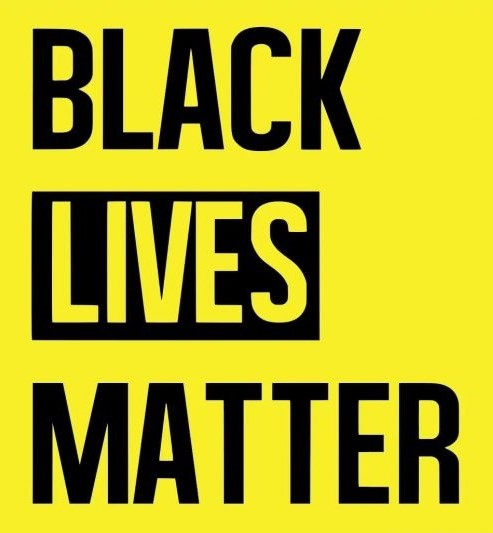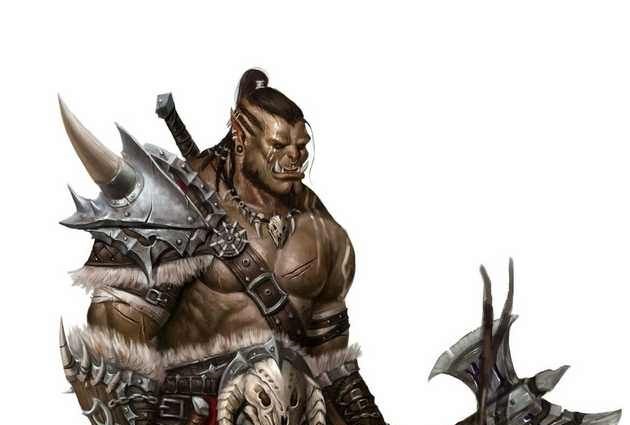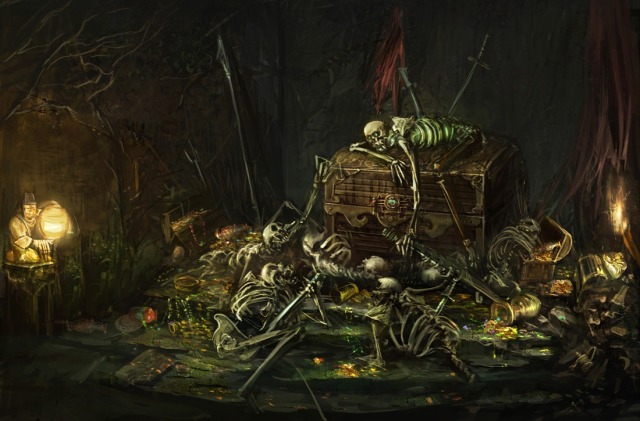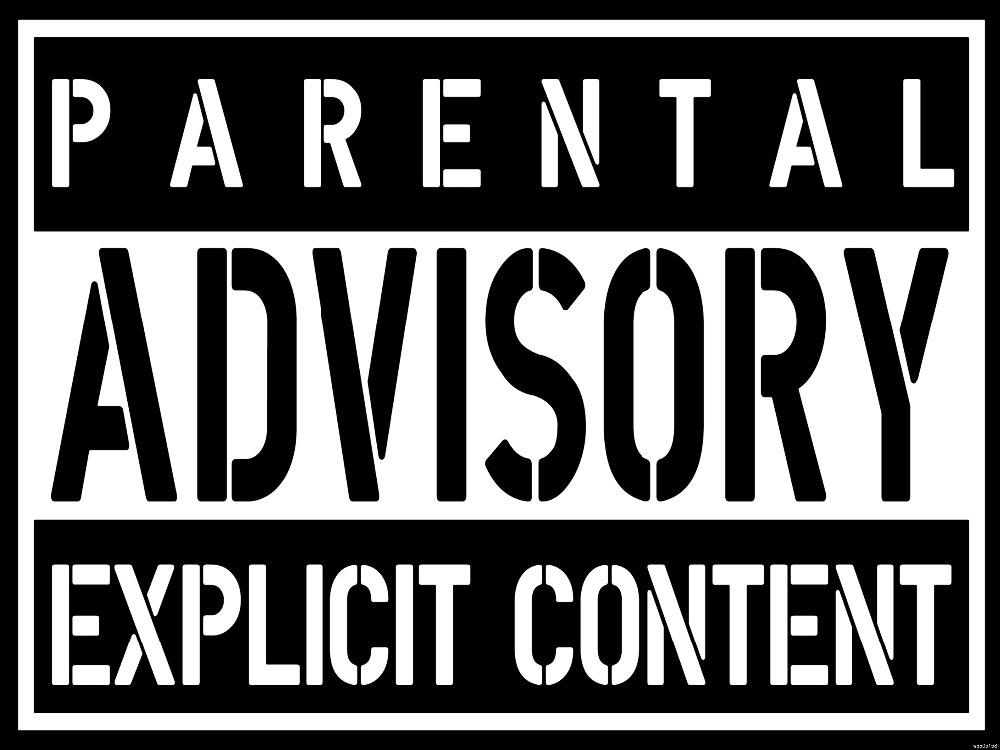Certain themes and controversies have the peculiar way of gradually expanding, as has happened with the balance between racism and political correctness in the world of RPG. What is just offensive or too much and what is considered part of freedom of expression has been debated for some weeks now.
What trumps the offense and what is instead a legitimately expressed concern? I took some time to reflect on it, and I think it’s time to express my point of view.
But first, a little context.
The issue escalated after the very serious, sad (and very wrong) fate of George Floyd. I consider that fact very serious, but that it should be weighed in a totally different way. The issue has raised myriad reflections, and this is good. I don’t agree with all of them (and you will understand why), but the fact that they caught the attention of the community and pushed it to think is a victory, to me.
But we are here to talk about role-playing games.
RPG, movies, video games: the border between racism and political correctness
These events have created emblematic cases in various sectors, as well as among opinion leaders. In the cinema, you have certainly heard of Gone with the Wind. In the gaming community, you may have heard the controversy about Little Devil Inside. As for the RPG, however, the issues of Political Correctness and racism have greatly influenced D&D5e.
Let’s take a closer look at that last point.
Wizards of the Coast has decided to apologize for the initial approach given to the orcs (and drow) and promised to give them greater depth. So far, their natures within the D&D narrative universe has always been cruel and ruthless, both being the irredeemable offspring of evil.
Is this necessarily a problem? It depends.
If you want to remain faithful to tradition, absolutely not, role-playing tends to create stereotypes among which a tangible concept of “evil” coalesces. On the other hand, one might ask why always them? Their origin has corrupted them and made them what they are, but isn’t this overkill?
Providing a straightforward answer would be counterproductive, I feel, better to break the issue down and deal with individual aspects. That way, this analysis can evolve on several axes.
The axis of history
First of all, note that when those creatures were originally penned, the era was different and the common (lack of) sensitivity, too. Fortunately, society has evolved, but this has created fractures around situations which, for decades, have stubbornly refused to evolve. Does this mean that the RPG was full of racism and the current Political Correctness is redeeming it? Absolutely not. The tradition of certain universes has reason to be respected, but it must not become a rule. Putting elves with dark skin in the The Witcher series for the sole purpose of appearing “correct” can be out of place, as it goes against the laws that govern that world and appear glaringly forced.
In the same way, I would find it sad to see all the classic races in every fantasy narrative universe written with roughly the same characteristics: refined and haughty elves, grumpy dwarves and violent orcs.
Why wasn’t it considered racism in the beginning? It isn’t because we’re too critical now, but rather because at the time that was new and original. Creating a world like Tolkien’s Middle-Earth in which orcs are created as evil-soaked creatures is not at all incorrect. Maintaining the same characteristics in any other fantasy work for forty years, however, certainly can be. Historical context plays a very important role in this analysis. A world created with certain ingrained laws has the right to exist without being considered racist, but at the same time it must always feel free to evolve if it deems it necessary.
The axis of the circumstance
This is perhaps the least ideological and most practical aspect. We speak as users of content, but we must consider that those works are the means of support for professionals. How do you blame those who decide to reinterpret their work in a more modern way to ensure that it continues to be appreciated and purchased? Such a choice should not be seen as “selling out”, but rather as trying to meet society’s demands instead of being fundamentalists and seeing one’s work die slowly. Then of course this discussion is much more pertinent to “young” works, since the more dated ones are likely to have a stable fan base.
And let’s not forget that the last word belongs to the author, not the critics. People can more or less agree on a possible smoothing of certain aspects that have become untenable to modern sensibilities, and can choose whether or not to look into a product on that basis. But the author should always have the last word on the work he has created. Although it may seem trivial to some, this has not always been the case in recent years.
In other words, we should always try to analyze choices in relation to society and not as abstract concepts unrelated to any logic. Role-playing often represents an escape route or an alternative version of the reality we live in; not taking this into consideration would be an error in judgement.
The axis of finality
Another decisive aspect is the aim given to a work. If you want to continue a tradition, I have already expressed my opinion on it. But this is not always the case: to fully understand it we must try to put ourselves in the shoes of those who are not in our situation.
To many, it may seem almost absurd to tie the discourse on racism and Political Correctness to RPG, but in my opinion it isn’t. Many of us have known the industry for years or have even witnessed its birth, but few these days have anymore. Let’s try to imagine how it is for a child to enter a world where racism is rampant and it is normal for everyone. A young person who has no way, time and/or desire to recover decades of works and context. The idea conveyed could easily be misrepresented. This doesn’t mean the Political Correctness needs to be amped up: it is enough to have in mind what the target of a work is and make it explicit.
So how do you find a balance between racism and political correctness in RPG?
What it would take to put an end to all these controversies? Classifying.
Make it clear right on the cover for which audience a specific role-playing game was written. As always, balance might be the solution; too many restrictions or too much indifference could be equally harmful. Using this method allows everyone to more easily find and enjoy a product suitable for them, without affecting other participants or limiting the choices of those who want more thorny content. This way, you can choose an approach that suits all participants during “session 0” pitching your new campaign, well aware of what a particular product offers. The importance of this circumstance is also noted in other aspects, not only that of racism. In “session 0”, you can also exclude all other issues that could ruin the gaming experience for some players.
In any case, this discourse hangs on a broader conversation, which also deserves to be mentioned.
Taboos: how to manage them effectively
The idea of obscuring a topic to prevent it from becoming a problem is wrong. For specific reasons like personal trauma, it makes sense, yes, but adopting this mentality across the board for all is damaging to the hobby.
Not wanting to deal with topics because they are thorny or heavy doesn’t help to raise awareness. Much better to face these issues (in-game) and get an idea of how wrong they are, so to recognize them and not to tolerate them even in real life. Denying the existence of horrors does not help in any way to make them recognizable as such and eliminates any possible statement in this regard. And if the discussion were to widen seriously to other topics, the situation would get even worse. Over-zealous Political Correctness as a means of combating racism and other evils risks eliminating great value from RPG – and other entertainment methods.
Try to think if “speech” was extended to books, films, TV series…. No more personal dramas resulting from tragedies, no more horror, no more “controversial” works… No, for me this state of affairs (albeit exaggerated) is not in any away desirable. The idea of “in RPG’s there is more immersion” carries no weight: a vulnerable mind is influenced by a thousand things in modern society.
To conclude, it is much more useful not to fall into excessive prohibition in my opinion; it’s better just to criticize bad taste. In this way, we leave authorship to content creators and the responsibility for what to deal with at the table at home lies with individual GM’s/players.
Transparency, open-mindedness and maturity, that’s all it takes.











